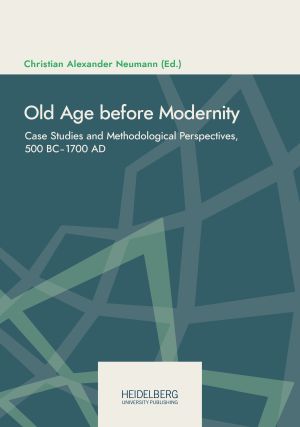Zitationsvorschlag
Lizenz (Kapitel)

Dieses Werk steht unter der Lizenz Creative Commons Namensnennung - Nicht-kommerziell - Keine Bearbeitungen 4.0 International.
Identifier (Buch)
Veröffentlicht
The Treatment of Old Age at Court. The Kings of Sicily from Roger II to Martin II (11th–15th Century)
Abstract According to Galenic theory, old age is not regarded as an unavoidable degenerative process, but as a stage of life in which it is possible to maintain health and prolong life. The aspiration to delay the ailments of old age inspired the thought and work of the philosophers and doctors who became figures of reference for the Sicilian kings, by recalling and re-proposing the myth of the prolongatio vitae. This contribution aims to focus on the strategies followed by the kings of Sicily who lived comparatively long, from Roger II (1095–1154), the founder of the Sicilian monarchy, to Martin II called “the Elder” (1356–1410), king of Aragon and Sicily, by analysing the cultural context of the various royal dynasties that ruled the island (Normans, Swabians, Angevins and Aragonese). The concept of old age is relative and must be seen in its historical development. The cases analysed here concern kings who were about sixty years old which is an age that today is not considered to be advanced. In the 14th century, general health manuals, the regimina sanitatis, were written for rulers to preserve youth and delay the onset of old age through the use of specific dietetic rules and therapeutic means, starting from the studies on the influence of the environment on man. Special attention will be paid to the reflections of the Catalan physician and philosopher Arnau de Vilanova, who was active at the court of Frederick III of Aragon in Sicily.






